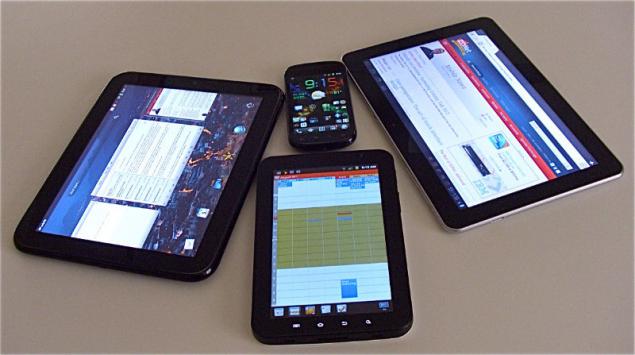1173
Brave new world: mobile operators, as a major supplier of advertising data
81,410,854
customer information that is available to mobile operators, surpasses in scope and quality of what they can get other members of the IT industry. Operators know the demographics of people, their approximate income level, place of residence, especially the use of mobile Internet and who he's calling. At the moment, this information is stored "inside" each telecom company, but it may happen that the data will become a new source of income for them - the advertising industry players are willing to pay for them a lot of money.
This is because the collection of statistics on mobile users (which becomes more and more - some spend more time on the network via a smartphone, rather than by computer) is difficult problem with cookie-files. On desktop computers, use the Internet through a browser, in which the "cookies" is, but in the mobile environment, most of the use of accounts for applications that do not use them. Therefore, advertisers are very interested in using these mobile operators - it would allow to considerably increase the accuracy and effectiveness of mobile advertising.
Today we talk about that and how it can be changed for network users and representatives of business, if the data of mobile operators really be open to advertisers.
What data there are operators h4> Company-cellular operators have a lot of data on user behavior than most other organizations of the IT industry. They get it from the contracts paid by users, in addition, they have access to information about the calls of people, as well as about what applications and situations in which they use the known carriers, and location of the subscriber.
customer information that is available to mobile operators, surpasses in scope and quality of what they can get other members of the IT industry. Operators know the demographics of people, their approximate income level, place of residence, especially the use of mobile Internet and who he's calling. At the moment, this information is stored "inside" each telecom company, but it may happen that the data will become a new source of income for them - the advertising industry players are willing to pay for them a lot of money.
This is because the collection of statistics on mobile users (which becomes more and more - some spend more time on the network via a smartphone, rather than by computer) is difficult problem with cookie-files. On desktop computers, use the Internet through a browser, in which the "cookies" is, but in the mobile environment, most of the use of accounts for applications that do not use them. Therefore, advertisers are very interested in using these mobile operators - it would allow to considerably increase the accuracy and effectiveness of mobile advertising.
Today we talk about that and how it can be changed for network users and representatives of business, if the data of mobile operators really be open to advertisers.
What data there are operators h4> Company-cellular operators have a lot of data on user behavior than most other organizations of the IT industry. They get it from the contracts paid by users, in addition, they have access to information about the calls of people, as well as about what applications and situations in which they use the known carriers, and location of the subscriber.
For example, a young man who recently graduated from the University can at a good price to buy an iPhone in the store operator bundled with the tariff plan. The agreement may well be the point that he is not against the anonymization, and the processing of their data for marketing purposes. Then, the user downloads the mobile application sends e-mail messages and visits sites on the Internet. A couple of times a day it comes to Facebook, uses cards "Yandex" to find the right place in the city - such as the company's office because he had recently graduated from the University and actively attends the interview.
Here are the data gathering the operator of such user:
- Use: sites visited, calls and messages (including the type of messages and their frequency);
- Location: where the mobile device at a particular point (the level of accuracy can vary from area to area);
- Demography: household income, number and age of children staying;
- Income: tariff plan, payment history, the pattern of shopping;
- Multiplatform: the use of data different devices and types of network connection (3G, WiFi, etc.).
However, until that happens, advertisers and owners of Internet resources to monetize their mobile traffic can use data from a variety of sources, choosing the most effective ones for a particular situation. These tasks are the services A / B testing of ad networks (for example, Advertone ).
Using advertising h4> operators can not only sell "raw" data, but also personally analyze them, revealing a variety of addiction and patterns of human behavior, and have the information to sell to marketers, advertising agencies and advertising sites.
For example, companies can collect data about what time of day in a certain area of the city is the most people - this, in turn, can be compared to information for users to better location of outdoor advertising, including Near Highway .

Working with the mobile audience is still a weak point of the majority of advertising platforms, and mobile operators could solve this problem. If they discover information about running applications, subscribers, using a browser, and the history of online purchases, advertisers could adjust their advertising campaigns more precisely targeting them for promising prospects.
In the case of the scenario described above, operators may be a major player in the advertising market, and become a serious competitor to existing DMP and DSP - the data more accurate than the operators do not have anybody.
The situation in the world h4> In fact, the future of time used in the above topic is rather arbitrary - in the US market (and Europe), cellular operators have long been close approaches to the new direction of the business.
One of the first forces in the advertising company tried to AT & T. In 2011 the operator launched a division AdWorkds, through which advertisers can access the data (so-called "advertising inventory") users. It was also launched large-scale advertising campaign with Foursquare and brand Levi's, the aim of which was to attract customers in the offline stores via display 10 billion mobile banner ads aimed at users selected based on analysis of mobile data from AT & T. In May 2013 AdWorks platform launched Blueprint, through which advertisers can have access to anonymized data of 70 million users for targeting advertising campaigns on the web, the mobile environment, and on TV.
Five months later, the direction AdWorks been quietly folded, but the process of transition of cellular operators to a new kind of business there was no stopping.

In October 2012, the launch of the initiative Precision Market Insights announced other operator - Verizon. The program advertisers can gain access to mobile data users to improve the efficiency of outdoor and online advertising. At Verizon stated that users' data will be sent for analysis marketers only with their consent - the same clause in the contract from the example of university graduates a few paragraphs above. Besides venture capital division of Verizon Ventures invested $ 1.5 million the development of start-Run, which develops system for the procurement of advertising and analytics.
The launch its own advertising exchange in April 2014. объявил Spanish telecom operator Telefónica. The company has teamed up with Blackstone and investment company bought the technology of bankrupt Exchange MobClix. The result was a new company Axonix, which will act as an intermediary between advertisers and web sites around the world, with the key markets referred to the USA, Europe and Latin America.
The company plans to provide data on the age, sex and location of 330 million Telefónica customers from around the world for advertisers, who can use them to refine their targeting of advertisements to users of mobile devices.
According to утверждению Akshay Sharma (Akshay Sharma) Research Director at the organization Carrier Network Infrastructure, related to Gartner Research, mobile operators can identify the owner of a smartphone with far greater accuracy than the current leaders of the mobile advertising market Google and Facebook - for example, the location they specify up to 15 m.
At Google understand the risk, so in the past year, the company entered into a agreement with the mobile operator Orange, according to which he handed Google a certain amount of their data.
As can be seen in the United States and Europe, operators are increasingly beginning to develop new market selling advertising data. In Russia, too, begins the first movement in this area - Habré already mentioned that one of the advertising services offered ISPs new source of income through the introduction of control systems and traffic management DPI (Deep Packet Inspection).
Such systems are able to monitor all unencrypted traffic users. With DPI, operators can introduce new tariff plans - for example, to free access to their own sites or significantly reduce the rate of access to the network for users who have exhausted their daily limit traffic. DPI in Russia are already using megaphone (since 2009 - hereinafter by data «Vedomosti "), MTS (in 2010) and" VimpelCom "(2010).
Outlook h4> On the way providers, decided to start selling the data for advertising purposes, it stands not only the dissatisfaction of users (after revelations Snowden few people happy to disseminate information about themselves, though impersonal), but also, in some cases, the legislation different countries. Another risk - is the leakage of user data. In the process of buying data involving several suppliers, some of which are protected against hacker attacks worse than telecom operators, for which it is vital.

Otherwise, the prospects of development of cooperation between operators with advertisers is limited only by the desire to engage in the first alignment of a new business. According to eMarketer, in 2014, the mobile advertising market in the world will reach the volume of $ 31 billion, and is estimated to ZenithOptimedia by 2016 this figure could reach $ 45 billion. As you can see, the market for mobile advertising are growing so rapidly that soon the operators will be hard not to notice . Are you willing to share their data available to mobile operators to get the most targeted advertising and informationYes, all the same for us is always watching I'm paranoid! No no data given do not want Do not mind if the data will be anonymised do not know tr > Only registered users can participate in the survey. Sign , please. Voted 187 people. 14 people abstained.
Source: habrahabr.ru/company/advertone_ru/blog/227257/
Displaying the gravitational forces of the solar system
The government is ready to pay for their studies at foreign universities Russians

























